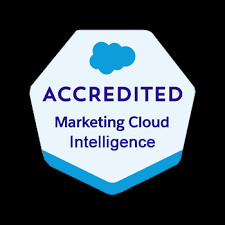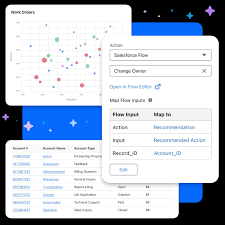In the rapidly developingng world of technology, Artificial Intelligence (AI) is revolutionizing industries and reshaping how we interact with digital systems. One of the most promising advancements within AI is the development of AI agents. These intelligent entities, often powered by Large Language Models (LLMs), are driving the next wave of digital transformation by enabling automation, personalization, and enhanced decision-making across various sectors. AI Agents and digital transformation are here to stay.
What is an AI Agent?
An AI agent, or intelligent agent, is a software entity capable of perceiving its environment, reasoning about its actions, and autonomously working toward specific goals. These agents mimic human-like behavior using advanced algorithms, data processing, and machine-learning models to interact with users and complete tasks.
LLMs to AI Agents — An Evolution
The evolution of AI agents is closely tied to the rise of Large Language Models (LLMs). Models like GPT (Generative Pre-trained Transformer) have showcased remarkable abilities to understand and generate human-like text. This development has enabled AI agents to interpret complex language inputs, facilitating advanced interactions with users.
Key Capabilities of LLM-Based Agents
LLM-powered agents possess several key advantages:
- Natural Language Understanding: They interpret and generate text to communicate seamlessly with users.
- Contextual Reasoning: LLM agents comprehend conversation context to deliver intelligent responses.
- Adaptability: They learn from new data and improve over time.
- Autonomous Decision-Making: AI agents act independently to meet their objectives.
Two Major Types of LLM Agents
LLM agents are classified into two main categories:
- Reactive Agents: Operate based on their immediate perceptions without retaining an internal state.
- Deliberative Agents: Maintain an internal model of the environment, using past experiences to make informed decisions.
Multi-Agent Systems (MAS)
A Multi-Agent System (MAS) is a group of autonomous agents working together to achieve shared goals or solve complex problems. MAS applications span robotics, economics, and distributed computing, where agents interact to optimize processes.
AI Agent Architecture and Key Elements
AI agents generally follow a modular architecture comprising:
- Perception Module: Allows the agent to sense its environment.
- Reasoning Module: Processes data, formulates plans, and makes decisions.
- Action Module: Executes actions, such as generating responses or performing tasks.
Learning Strategies for LLM-Based Agents
AI agents utilize various learning techniques, including supervised, reinforcement, and self-supervised learning, to adapt and improve their performance in dynamic environments.
How Autonomous AI Agents Operate
Autonomous AI agents act independently of human intervention by perceiving their surroundings, reasoning through possible actions, and making decisions autonomously to achieve set goals.
AI Agents’ Transformative Power Across Industries
AI agents are transforming numerous industries by automating tasks, enhancing efficiency, and providing data-driven insights. Here’s a look at some key use cases:
- Enterprises: AI agents automate repetitive tasks, streamline operations, and enhance decision-making, allowing teams to focus on strategic initiatives.
- Healthcare: These agents assist in diagnosing diseases, personalizing treatment, managing patient records, and automating administrative tasks.
- Finance: AI agents enhance risk management, fraud detection, and personalized financial services while automating investment recommendations and trading strategies.
- Customer Service: AI agents power chatbots and virtual assistants, providing 24/7 support and personalizing customer interactions.
- Legal: In legal practice, AI agents automate document review, legal research, and contract analysis, reducing errors and saving time.
- Marketing: AI agents analyze consumer data to optimize marketing strategies, leading to higher engagement and conversion rates.
- Sales: These agents automate lead generation, predict customer behavior, and provide actionable insights to improve sales processes.
- Insurance: AI agents streamline claims processing, underwriting, and fraud detection, improving accuracy and efficiency.
- Human Resources: In HR, AI agents manage recruitment, assess candidates, and provide insights for employee development and engagement.
- Retail and E-commerce: AI agents personalize shopping experiences, manage inventory, and optimize pricing, driving sales growth.
- Hospitality: These agents automate booking processes, provide personalized recommendations, and manage guest services, ensuring a seamless experience.
Platforms Powering AI Agents
- Autogen: An AI agent platform that enables organizations to build intelligent agents for applications such as customer service, sales, and marketing.
- CrewAI: A collaborative AI agent platform designed for team-based decision-making, allowing agents to work together to solve complex problems.
The Benefits of AI Agents and Digital Transformation
AI agents offer several advantages, including:
- Increased Efficiency: They automate routine tasks, improving operational efficiency.
- Enhanced Customer Experience: AI agents provide personalized, responsive service.
- Data-Driven Insights: They analyze vast amounts of data to uncover patterns and inform decision-making.
The Future of AI Agents
The potential of AI agents is immense, and as AI technology advances, we can expect more sophisticated agents capable of complex reasoning, adaptive learning, and deeper integration into everyday tasks. The future promises a world where AI agents collaborate with humans to drive innovation, enhance efficiency, and unlock new opportunities for growth in the digital age.
AI Agents and Digital Transformation
By partnering with AI development specialists at Tectonic, organizations can access cutting-edge solutions tailored to their needs, positioning themselves to stay ahead in the rapidly evolving AI-driven market.













